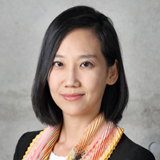Panel: Back to History in East Asia? (RR)
– Talking Points: Togo Kazuhiko
Date/Time: Tuesday, April 22, 2014 / 10:15-11:30
Speakers:
Gilbert Rozman, The Asan Forum (Moderator)
Chen Zhimin, Fudan University
Ralph Cossa, The Pacific Forum CSIS
Kim Jiyoon, The Asan Institute of Plicy Studies
Togo Kazuhiko, Kyoto Sangyo University
Session Description
The economic rise of East Asia has often been called a miracle. Today, the hard-won prosperity is being threatened by resurgent nationalism and realpolitik. The attendant territorial disputes, historical revisionism, and an impending arms race hearken back to the darkest period in the region’s history. Why is this happening now? What are the regional dynamics and historical inertia behind this ominous trend? Is this a passing phase? Can we overcome history or will we be overwhelmed by it?
Session Sketch
Gilbert Rozman opened the session by acknowledging that history is resurgent in East Asia but that it does not need to repeat itself. Despite recent unsettling events, including Abe’s Yasukuni Shrine visit and North Korea’s provocative behavior, the objective should be to focus on new ways to conceptualize and analyze relations in the region. Rather than taking an idealistic approach in an attempt to reverse the course of events, the focus should be on placing recent events in a broader context.
Chen Zhimin echoed this sentiment. He noted the decline in progressivism and optimism, and the rise in skepticism among countries in the region. While conceding the resurgence of rivalry, Professor Chen argued that conflict is unlikely for six main reasons. First, the world of today is a live and let live world. Second, states are more concerned about the welfare of their citizens than power. Third, growing interdependence creates shared interests. Four, regional institutions are on the rise. Fifth, East Asia is not isolated from the world but embedded in a larger world system that is relatively balanced. Finally, China’s strategic culture is not expansionary or aggressive. In conclusion, smart diplomacy and statecraft are necessary to help deal with an admittedly delicate and shifting context. To avoid conflict, China must be allowed to become the most prominent regional power without dominating others in the process.
Ralph Cossa followed by highlighting several key points. First, Japan’s resurgence is often overblown when put comparative context. Second, the US presence in the region has deep historical roots, is sustained by calculations of national interest, and preceded China’s rise. Lastly, not enough attention is paid to the Japan and Germany’s peaceful postwar rise within the international system. This provides insight for accommodating China’s own rise. Moving forward, one step leaders could take would be to renounce the use of force regarding ongoing territorial disputes.
Kim Jiyoon highlighted several salient point based on her work with public polling data. While the Korean public holds very unfavorable views regarding Japan, a majority of respondents still favor efforts toward building a more fruitful relationship. Moreover, ethnocentric nationalism is actually on the decline. Lastly, contrary to concerns in Washington, a majority of respondents favor security cooperation with the US and Japan over cooperation with China. Furthermore, 56 percent of respondents agreed that Korea should put historical issues behind them. In all, the public shows a more nuanced and complex perspective than simply hardened attitudes based on intense nationalism thus opening the way for cooperation.
Togo Kazuhiko stated that unfortunately history has returned, but that there are ways for all parties to move forward in a constructive manner. Prime Minister Abe is correct in striving to reform Japan’s constrained postwar position, but the process must be dealt with carefully. President Park of South Korea has a responsibility to confidently exert leadership to settle disputes. In the case of China, its rise is only unsettling if it chooses to take a more assertive stance. If all three countries can find a way to accommodate one another’s concerns, they may move forward in forming a regional order that incorporates both Western norms and Chinese values.
The question and answer session revolved around two key points. First, Japan’s resurgence and right to collective self-defense was debated. Ralph Cossa argued that Japan’s capabilities are not threatening when put in comparative perspective, and that the right to collective self-defense is not re-militarization. The second point involved the recent debate regarding the memorial to Ahn Jun-Geun. Togo Kazuhiko remarked that Ahn Jun-Geun’s own ideas regarding regional cohesion and cooperation have unfortunately been lost in the debate.

 Facebook
Facebook Twitter
Twitter














